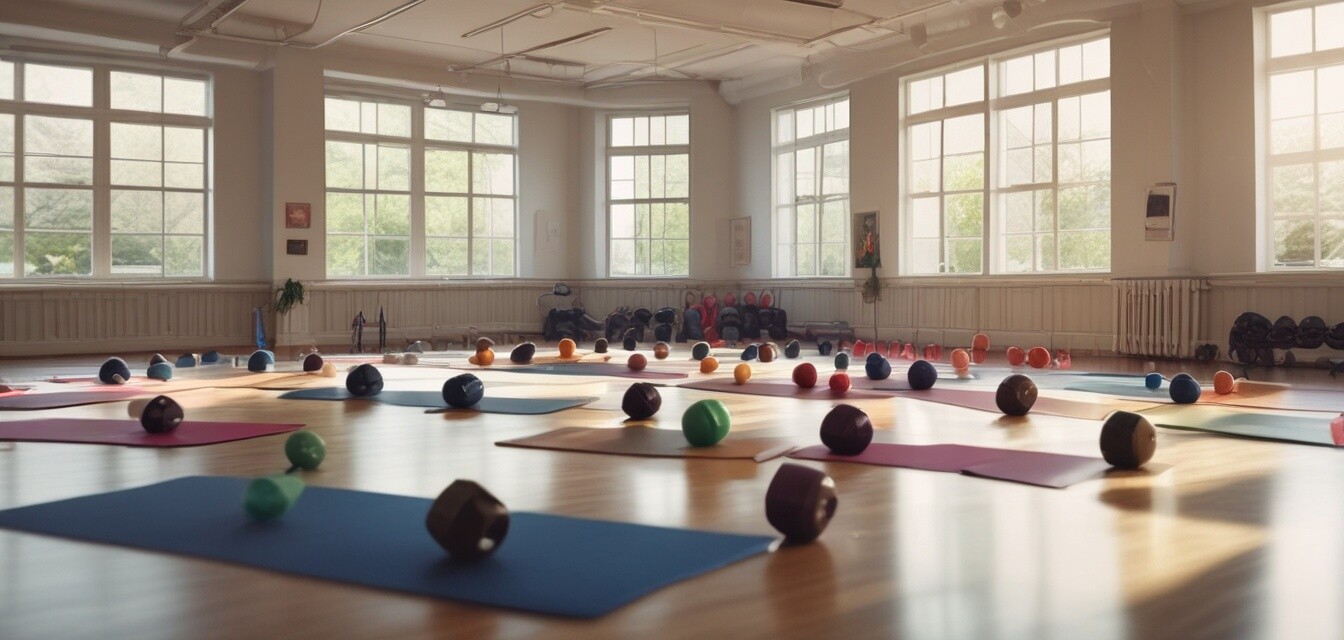
Safety Considerations for Group Strength Training for Seniors
Key Takeaways
- Prioritize safety by choosing classes designed for senior fitness levels.
- Always consult with a healthcare professional before starting any new exercise program.
- Understand the importance of proper warm-up and cool-down routines.
- Stay hydrated and listen to your body’s signals during workouts.
- Be aware of the group dynamic and how it can affect your training experience.
Participating in group strength training classes can be highly beneficial for seniors. However, ensuring safety is paramount to maximize the positive outcomes of these workouts. This article will explore essential safety tips that can enhance your experience in group training settings while fostering a supportive environment.
Benefits of Group Strength Training
Group strength training offers many advantages, especially for older adults, including:
- Social interaction and encouragement
- Guidance from trained instructors
- Motivation through shared goals
- Accessibility to a variety of strength training equipment
Choosing the Right Class
When selecting a group strength training class, consider the following factors to ensure your safety:
- Instructor qualifications: Confirm that the instructor has experience working with seniors and holds relevant certifications.
- Class size: Smaller classes often provide more personalized attention and reduce the risk of injury.
- Equipment availability: Ensure there is enough appropriate equipment for all participants.
Warm-up and Cool-down Routines
Starting with a proper warm-up and ending with a cool-down is crucial in any strength training program. These routines help prevent injury and promote recovery. Here’s how to structure these segments:
Warm-up Activities
- Gentle stretching of major muscle groups
- Light aerobic movements, such as walking or marching in place
- Dynamic movements mimicking the exercises planned for the class
Cool-down Activities
- Slow walking to lower the heart rate
- Static stretching targeting worked muscle groups
- Breathing exercises to promote relaxation
Listening to Your Body
It’s essential to listen to your body during group classes. Here are some safety tips:
- Be aware of any discomfort or pain, and do not hesitate to communicate this with your instructor.
- Adjust the intensity of exercises based on your personal fitness level.
- Don’t compare yourself with others; focus on your progress.
Hydration and Nutrition
Staying hydrated is key to a safe and effective training session, especially for seniors. Follow these guidelines:
- Drink water before, during, and after the class.
- Consider having a light snack prior to working out to maintain energy levels.
Group Dynamics
The atmosphere in a group setting can greatly influence your experience. Consider these factors:
- Find a supportive group that shares similar fitness goals.
- Encourage each other in your progress; camaraderie can greatly enhance motivation.
- Respect individual differences and fitness levels.
Safety Checklist for Group Strength Training
| Safety Measure | Description |
|---|---|
| Consult a healthcare professional | Get clearance to participate in strength training before attending a class. |
| Arrive early | Give yourself time to set up and familiarize yourself with the space and equipment. |
| Wear appropriate clothing | Opt for comfortable, non-restrictive clothing and supportive footwear. |
| Use proper equipment | Ensure that the equipment fits you correctly and is suitable for your level. |
| Understand class flow | Ask the instructor about the class structure and sequence of exercises. |
Conclusion
Group strength training can be a rewarding way for seniors to maintain fitness and foster social connections. By following these safety considerations, you can ensure a positive and effective workout experience. Always prioritize your health and well-being while enjoying the benefits that come from group strength training.
Pros
- Encourages social interaction
- Personalized guidance from instructors
- Variety of workouts and equipment
Cons
- Can be overwhelming for beginners
- Risk of injury if not careful
- Difficulty in finding the right class level
For more detailed information about strength training equipment, you can check our guides on dumbbells, resistance bands, and exercise equipment. If you want to explore further safety tips or learn about different exercises, visit our Safety Tips category and stay informed.